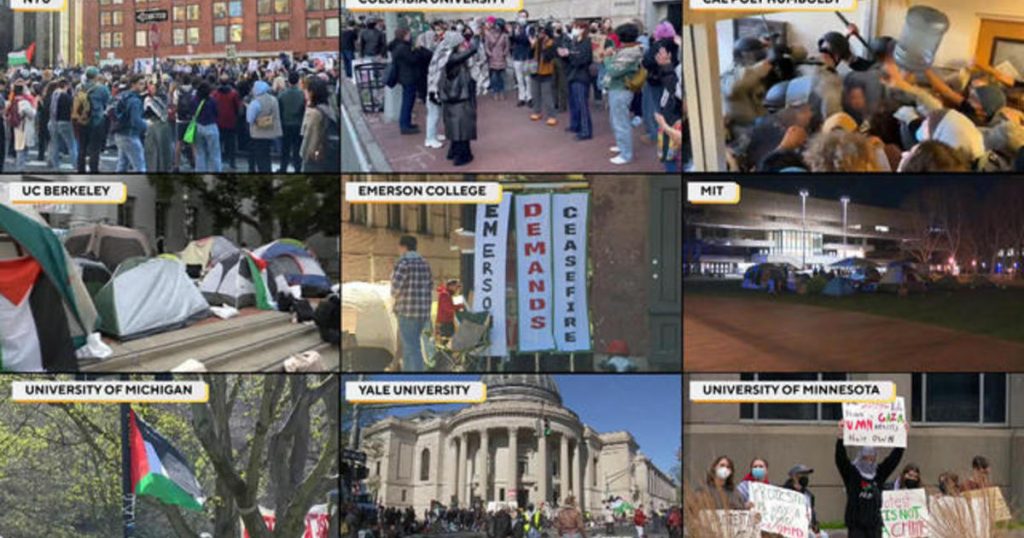Tensions are rising on college campuses across the nation as students express their anger over the ongoing war in Gaza. At Columbia University, students were warned they had 48 hours to remove an encampment from campus, while at NYU, plywood barricades were put up around a campus plaza following the arrests of 120 people at a demonstration on Monday.
The protests on college campuses reflect the broader public sentiment towards the war in Gaza, with many students feeling angry and frustrated about the situation. Students are voicing their concerns through demonstrations and acts of civil disobedience, garnering attention from the public and the media. The escalation of tensions on college campuses highlights the emotional impact that the conflict in Gaza is having on individuals, particularly young people who are directly affected by the violence.
The demonstrations on college campuses are part of a larger movement to raise awareness about the war in Gaza and to protest against the actions of the Israeli government. Students are using their platforms to speak out against what they see as injustice, and are demanding accountability from their universities and government officials. The protests have drawn attention to the issue and have sparked conversations about the role of universities in addressing political and social conflicts.
As tensions continue to rise on college campuses, there is a growing sense of urgency among students to take action and to speak out against the war in Gaza. Many students are using social media and other platforms to amplify their voices and to mobilize support for their cause. The protests have brought together students from diverse backgrounds and have created a sense of solidarity among those who are passionate about ending the violence in Gaza.
The response from universities and law enforcement to the protests on college campuses has varied, with some schools taking a more aggressive approach to handling the demonstrations. The actions of university administrators and law enforcement have sparked further controversy and debate about the rights of students to protest and express their opinions. The clashes between students and authorities highlight the complexities of navigating political issues on college campuses and the importance of ensuring that students have the freedom to peacefully protest.
Overall, the tensions on college campuses over the war in Gaza reflect the broader national conversation about the conflict and the impact it is having on communities across the country. The protests serve as a reminder of the power of young people to organize and make their voices heard, and highlight the role that universities play in shaping public discourse and advocating for social change. As the demonstrations continue and tensions escalate, it is clear that students are committed to standing up for what they believe in and pushing for a resolution to the conflict in Gaza.


